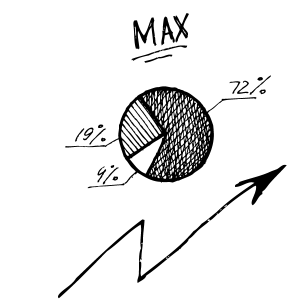As the legal industry undergoes a digital transformation, driven most recently by advances in artificial intelligence (AI), the demand for attorneys equipped with both legal expertise and technological prowess is on the rise. In this rapidly evolving landscape, where AI, blockchain, and data analytics are becoming integral components of legal practice, specialized LL.M. programs in Legal Technology have emerged as an increasingly relevant educational pathway.
These specialized programs bridge the gap between law and technology, equipping students with the skills and knowledge necessary to become proficient in the tools and concepts that are transforming the practice of law. AI, in particular, promises to transform legal research, document review, contract analysis, predictive analytics, and even client interactions.
Generative AI is top of mind for lawyers
Law schools say that it’s becoming crucial for lawyers to adapt, embrace, and leverage these innovations to improve the efficiency and accuracy of their daily practices. “It’s currently the number-one topic on the mind of many legal professionals, from law firms to in-house departments and courts,” says Dirk Hartung, Executive Director of the Center for Legal Technology and Data Science at Bucerius Law School in Germany.
“We see dramatic improvements in the quality of the output of generative AI tools and increasing use for legal research, business functions and even the creation of drafts for all types of legal documents -- from contracts to memoranda and both submissions to and decisions by the courts,” he says of generative AI, which aims to produce content by learning from existing data.
“One example would be compliance with documentary duties under GDPR [Europe’s data protection regulations] or within ESG [environmental, social and governance] investment frameworks, where generative AI is used both to generate and also summarize extensive documents,” says Hartung.
Bucerius Law School was among the first to introduce a Legal Technology Specialization for students on the Master of Law and Business. It’s designed for those who are looking to navigate the evolving landscape of legal services.
Participants learn the fundamentals of AI and machine learning, and how they apply to the legal sector. They also learn how to leverage such tools for tasks like legal research, contract analysis, and due diligence. That’s in addition to using AI for predictive analysis in legal disputes, regulatory risks and access to justice.
“We believe in teaching participants the relevant foundational skills so that they gain an initial understanding of the topic with us and become capable of keeping up to date by judging the veracity of material and information on legal technology once they have left our campus. That includes capabilities for ideation such as design thinking and process improvement,” Hartung says.
Demand for digital lawyers is soaring
The demand for legal experts who possess a deep understanding of emerging technologies, and their legal implications is rapidly increasing. As legal technology continues to reshape the industry, professionals armed with this unique expertise are poised to become catalysts for change within law firms, corporate legal departments, and innovative legal startups.
“When we think about career opportunities for our graduates, many are enticed by work in legal technology,” says Matthew D’Amore, a Professor of Practice at Cornell Tech and in the Law School at Cornell University in New York. “We have seen some join firms in innovator or knowledge management roles, while others join startups in the legal technology space, and still others go to established companies in the field.”
Cornell Tech’s LL.M. in Law, Technology, and Entrepreneurship aims to provide the skills attorneys need to work in the complex digital economy. D’Amore says that success along any of these paths requires a willingness to learn both about legal processes and about legal technology. “The legal technology market is continuing to expand and mature.”
Others agree. “We are moving toward new approaches like productization of legal services and using technology to create new legal business models like subscription services, flat fees and virtual practices,” says Dennis Kennedy, the Director of the Center for Law, Technology & Innovation at Michigan State University College of Law.
At MSU, he says the school is offering classes in new legal business models and entrepreneurial lawyering, as well as new ways to create and deliver legal services, and classes focused on new technologies and law.
However, law schools say that it’s important to note that technology -- and especially generative AI models -- are not always perfect, and there can be limitations and ethical considerations associated with their use. AI has revived concerns about the loss of human jobs, but the world will still need lawyers, says Michele DeStefano, Professor of Law at the University of Miami.
“For example, we will need lawyers to help train the technology and to leverage the technology to make better predictions and decisions. We will need lawyers to help drive a culture of compliance and ethics and lead purpose-driven initiatives. And I think technology poses an opportunity for more creativity by lawyers because it will free up our time and our minds from the tedious and routine and repetitive tasks so we can focus on the creative, visionary and strategic projects.”










